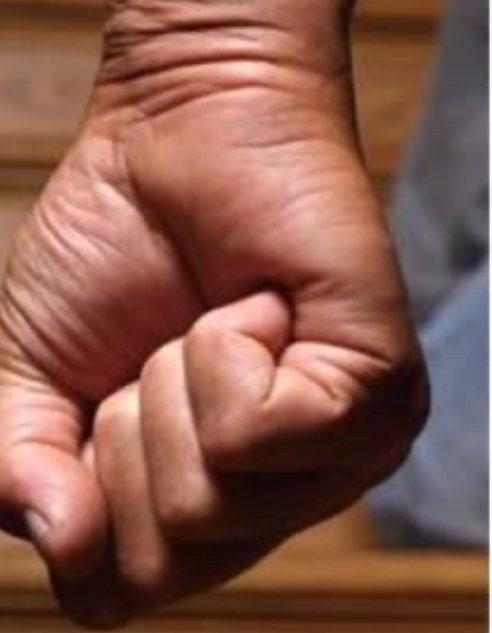
Chaos as Iyanya Offers ₦500k to Nurse Who Defied Nationwide Strike, Sparks Heated Debate Online

The Twitter streets were set ablaze this week when Nigerian singer Iyanya waded into a national controversy that has not only divided opinion across social media but also raised critical questions about labour solidarity, the value of essential services, and how individual acts of conscience can collide with collective struggle. It all started with a viral post by Chudé, a user known for his motivational tweets, who spotlighted a nurse that chose to stay back at her duty post during an ongoing national strike by the Nigerian Nursing Association. In a passionate call for recognition, Chudé wrote, “A nurse called out a colleague for refusing to leave work after the Nursing Association in Nigeria went on strike. Can someone find her for me, I want to give her 500k. She is not a health care worker for the money but for human lives. Someone find her for me please.”
That was the spark. But the real fire came when singer Iyanya—known for his hit track "Kukere" and recently more outspoken stances on social issues—picked up the tweet and publicly echoed the offer, doubling down on his admiration for the nurse. “Find her for me, I have 500k for her immediately,” Iyanya posted on X (formerly Twitter), adding that, “She is an essential worker and she deserves some compensation, and the way she was humiliated was wrong.”
Enter Chidimma, another user who took a very different stance. “Why do some Nigerians love rewarding bad behavior??” she asked pointedly, igniting an online battle that would quickly draw thousands of retweets, comments, and quote posts. To Chidimma, the nurse’s decision wasn’t heroic—it was counterproductive and damaging to a larger cause. “It is bad behaviour because she's undermining collective action. If nurses are on strike, it's not because they don't love their jobs, it's because they're ignored, underpaid and overworked. If you give her money today, and tomorrow, more people try to emulate her, how will the government listen and fix the broken system? How many people are you going to give 500k???”
The clash between Iyanya and Chidimma quickly evolved into a larger national conversation. On one hand were those who saw the nurse’s actions as selfless and worthy of praise, especially in a country where emergency healthcare services often collapse during labour strikes. On the other hand were critics like Chidimma, who argued that such individual choices jeopardize the leverage that striking workers have when demanding systemic change from a government long accused of neglect and underfunding of the health sector.
Iyanya, never one to shy away from controversy, responded firmly, asking, “What’s your definition of bad behavior? A nurse decided not to go on strike so she can save lives—being at work is bad behavior to you?” His stance resonated with many Nigerians who have watched loved ones suffer or even die during previous health-sector strikes. His argument centered on the idea that healthcare workers, especially during emergencies, serve a critical role that can’t be put on pause, even in the name of just causes.
But supporters of Chidimma’s stance were equally loud and persistent. They highlighted the historical importance of strikes in achieving labour rights, citing how without collective defiance, improvements in working conditions rarely materialize in Nigeria. “Rewarding outliers weakens our voice,” one user wrote. “If we all act alone, we fall alone.”
The debate struck at the core of a long-standing Nigerian dilemma: should individuals sacrifice personal ethics and compassion for the greater good when the system itself is deeply flawed? Is staying at work an act of betrayal, or of heroism? Can both be true?
This latest social media war isn’t just about one nurse and one cash reward. It’s about a broken healthcare system, years of failed negotiations between medical staff and government, and a public increasingly frustrated with political inertia. The Nigerian Nursing Association has repeatedly called for better pay, safe working environments, and better staffing, all of which have fallen on deaf ears. In the face of that, some argue that the only language the government understands is disruption. But others ask: at what human cost?
Lost in the noise, perhaps, is the voice of the nurse herself—unnamed and yet the center of this digital hurricane. Some netizens have called for her identity to remain private to protect her from both unwanted fame and potential backlash from union members. Others insist she should come forward and receive the ₦500k reward that started it all.
Meanwhile, Iyanya continues to defend his offer unapologetically, and Chidimma has not backed down, only reinforcing her arguments with further points about systemic failure and how individual rewards can breed disunity. Their disagreement reflects a broader national crisis—one where Nigerians are being forced to choose between crumbling institutions and personal integrity.
The aftermath of this debate may not be known for a while. Will the nurse eventually receive the ₦500k? Will this reward inspire more healthcare workers to defy strikes, thereby weakening the impact of future protests? Or will the online backlash force a rethinking of how individuals and celebrities should respond to labour crises?
What’s undeniable is that this episode has revealed just how divided Nigerians are on the balance between empathy and activism, between supporting individuals who show up when it matters, and ensuring that collective action leads to long-term change. Whether you stand with Iyanya or with Chidimma, one thing is certain: the conversation is far from over, and its outcome might just influence how Nigerians think about protest, reward, and responsibility for a long time to come.


